It was downloaded more than 100 million times in less than a month after it was launched in the US.
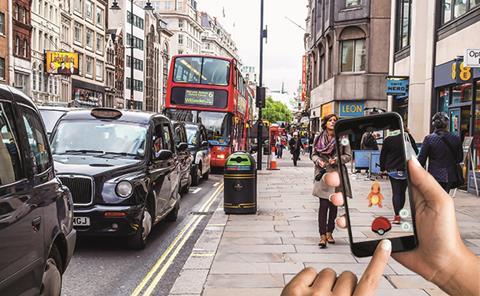
At one point, it had more daily active users than Twitter. It is also a huge money-spinner, making $200m (£153m) for developer Niantic in its first month alone.
Oh, and it might just help shopping centres battle the threat of online retail.
I am talking, of course, about Pokémon Go: the global gaming phenomenon that uses augmented reality and geolocation technology to allow users to catch cartoon creatures at the bus stop, in the supermarket and in almost any real-life location, before pitting them against others in gyms.
Piggybacking on the latest trends is nothing new for the owners and operators of retail and leisure premises. Rarely, though, has anything been seized upon with quite such zeal as Pokémon Go by retailers and landlords alike.
But how much can businesses really benefit from a game they have no control over? And is it worth investing in what could be a flash in the pan?
In footfall terms, I can’t think of anything else that’s had this effect - Jonathan Bayfield, JLL
There are three main ways retailers have been trying to capitalise on the Pokémon craze, according to Jonathan Bayfield, a senior retail analyst at JLL: by posting tips online about which Pokémon are in the vicinity; by providing free Wi-Fi so gamers don’t drain their mobile data; and by paying for ‘lures’ - items that attract more Pokémon to a specific location and increase traffic.
The impact has been immediate and dramatic, say agents. Indeed, Kate Taylor, a director at Davis Coffer Lyons, goes as far as to say: “In footfall terms, I can’t think of anything else that’s had this effect. It’s a fun way to combat some of the issues around how retailers continue to drive foot traffic.”
The retailers themselves also attest to the benefits. Costa Coffee, which has Wi-Fi in all its outlets, reported a 30% increase in footfall when the game was released (14 July). Maxwell’s Bar & Grill in Covent Garden, which has been spending £100 a day on lures and dedicated a member of staff to manage the game, says it saw a 26% increase in customers over a single weekend in July.
Pokémon tips
- Although it is one of the selling points of the game, some prefer to play without using the augmented reality mode - claiming this makes it easier to catch Pokémon
- Some who have managed to put the game down for a few days say that rarer characters appeared when they returned - perhaps a ploy from the developers to keep them interested…
- Take the bus - while cars or trains moving at more than 15mph won’t count towards the walking distance required to hatch Pokémon from eggs in the game, a slowly moving bus can be just the ticket
- Don’t shun common characters such as Rattata and Pidgey - catching and evolving them will help you level up more quickly
- You can choose to evolve the fox Pokémon Eevee into Jolteon, Flareon or Vaporeon - an electric, fire or water Pokémon - by giving them the nickname Sparky, Pyro or Rainer
The upside is not restricted to footfall. “It also helps with making developments less sterile,” says Niall Ingham, a senior surveyor in CBRE’s creative London leasing team, who cites the Republic scheme in East India Dock, which boasts a Pokémon gym and two PokéStops. “There have been a lot more people milling around, and the food market has been a lot busier,” he says.

Some landowners have gone even further. “We created a Pokémon map to encourage those who come to Canary Wharf purely to seek out Pikachu and friends to explore the area,” explains Camille Waxer, managing director of retail at Canary Wharf Group. “We also offered Canary Wharf gift cards to players if they tweeted screen grabs of their rare finds around the estate.”
This approach appears to have paid dividends for Canary Wharf, which gained national media coverage after the first person in the UK to catch all 145 Pokémon completed the game on its turf.
“You have got to have a strategy,” says Capital & Regional operations director Sara Jones, who adds that the company sends tweets to advertise what times lures are activated at its shopping centres, often timing them to coincide with new store openings, and that it has seen a marked increase in dwell time.
One of the frustrations for landlords wanting to attract Pokémon hunters is that having a PokéStop or gym on your premises is currently down to luck. “You could initially put in a request for a gym, but because demand was so high they’ve shut down the website,” says Jones.
Sponsorship deals
Niantic is revealing little of its plans, but has yet to capitalise on the trend’s huge UK popularity by offering sponsorship deals. In Japan, by contrast, McDonald’s reported a 27% jump in sales after paying for its restaurants to be featured in the game, and many UK operators and landowners would be willing to pay for the same privilege.
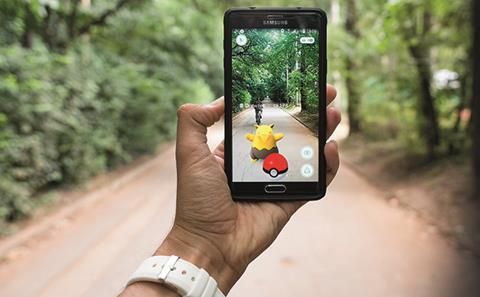
“The app is free to download, so the real money Niantic will make is from ‘rentalising’ the game,” says Ingham. “We’ll see that come into the mix in about six months’ time.”
Bayfield agrees. “There will be paid stops in the future - [Niantic] is probably just riding the wave at the moment and holding back to make more of an impact later,” he says.
Another way the trend could be useful to retailers is if the company sold data about who visits their premises, as other geographically linked apps such as Uber do.
Users are so transfixed by their screens that they will fall over or knock into each other - Martin Edwards, Shakespeare Martineau
The technology may be a boon for some but, as has been well publicised, encouraging players to seek out locations while on their phone can pose risks. Players are reported to have been involved in hundreds of police incidents since the app launched.
“Users are so transfixed by their screens that they will fall over or knock into each other,” says Martin Edwards, head of real estate disputes at Shakespeare Martineau.
“There’s a quid pro quo - you can’t just stick a sign up saying ‘Pokémon users welcome’ if your premises are hazardous to people glued to a screen.”
Some retailers would rather the trend went away. Footfall is great if it translates into sales but not if people are just entering your premises to catch Pokémon, they argue. There is also the issue of appropriateness. On these grounds, designated PokéStop the Washington Holocaust Museum asked players to stay away.
Edwards says it would be difficult to gain a court order to prevent Pokémon users entering your premises. “You’ve got the virtual world colliding with the real world - but in the real world, there are real property rights and landowners who have something to say,” he says. “In terms of how the law responds, we’re in completely uncharted territory.”
A wider reality
Inevitably, the novelty of Pokémon will start to wear off. However, says Bayfield: “I don’t think it’s a fad. People are still playing it and if retailers are clever at marketing, the game will have an effect on footfall and sales.”
Even if the game itself does come and go, the technology is here to stay and could have major advantages for retail, he adds. “Niantic has managed to capitalise on four major trends: mobile, geolocation, augmented reality and social media.”
Geotagging presents a huge opportunity, he argues. “In the future, if you’ve signed up for alerts from a retailer and it can see you’re 200 yards from its store, it could send you push notifications offering 5% off its products if you go in.”
Augmented reality - the ability to make digital elements appear in the real world, as Pokémon Go does through a smartphone’s camera - is “the next big thing” in retail, adds Taylor. “It could mean being able to look at clothes on yourself before you buy them, for example,” she says.
For now, the big thing is Pokémon Go, and in the game’s parlance, retailers keen to ‘evolve’ their footfall figures and ‘catch’ more customers are doing what they can to ‘level up’ so they make ‘headway in battle’. As the saying goes, gotta catch ‘em all.
























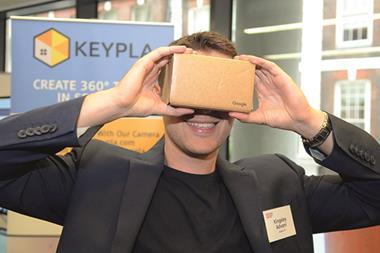
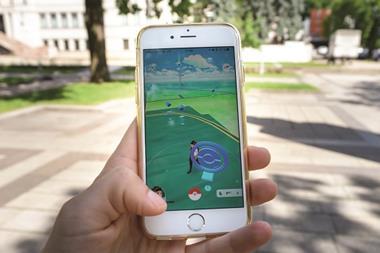



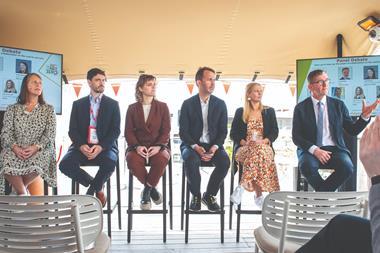
No comments yet